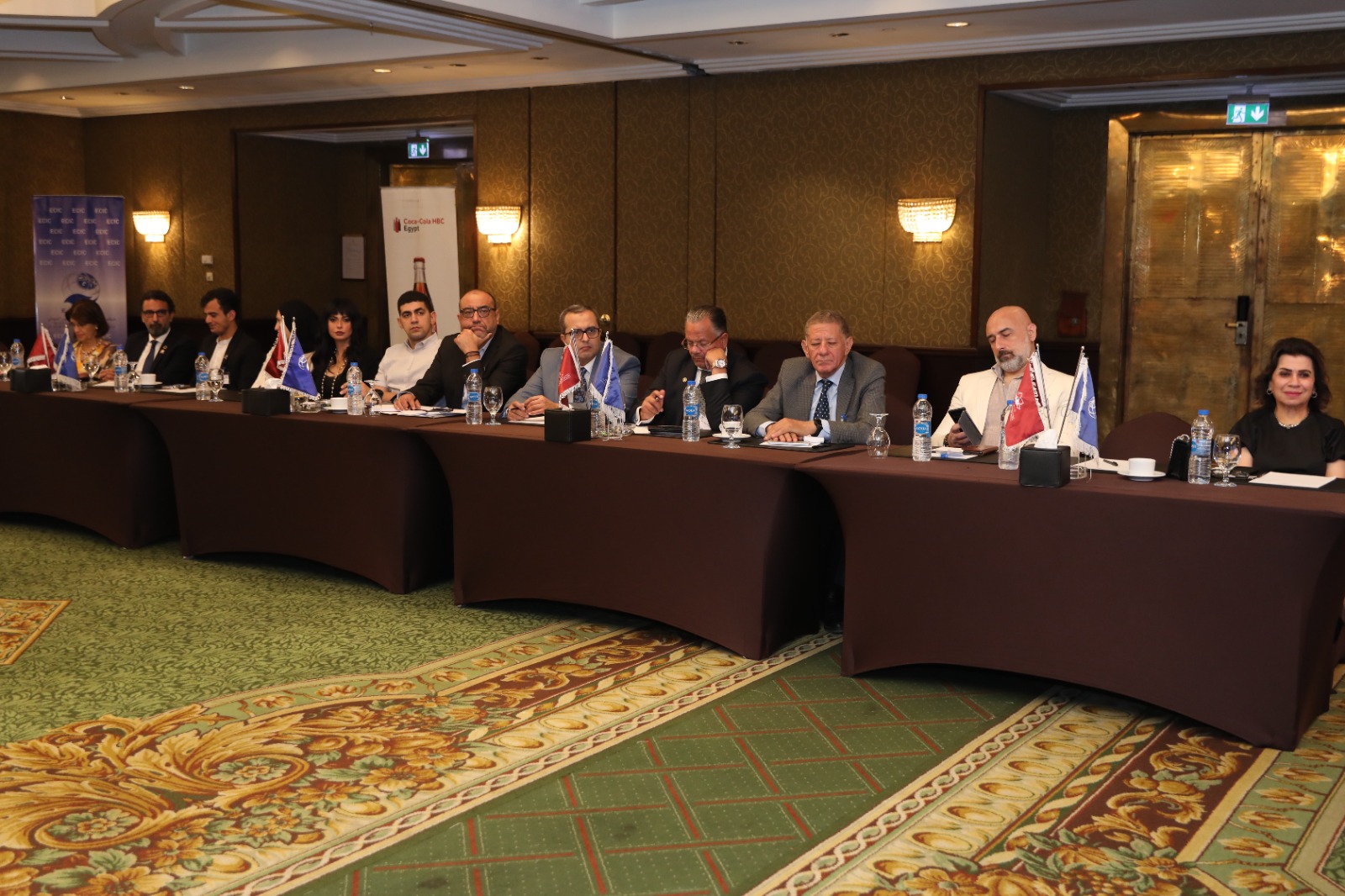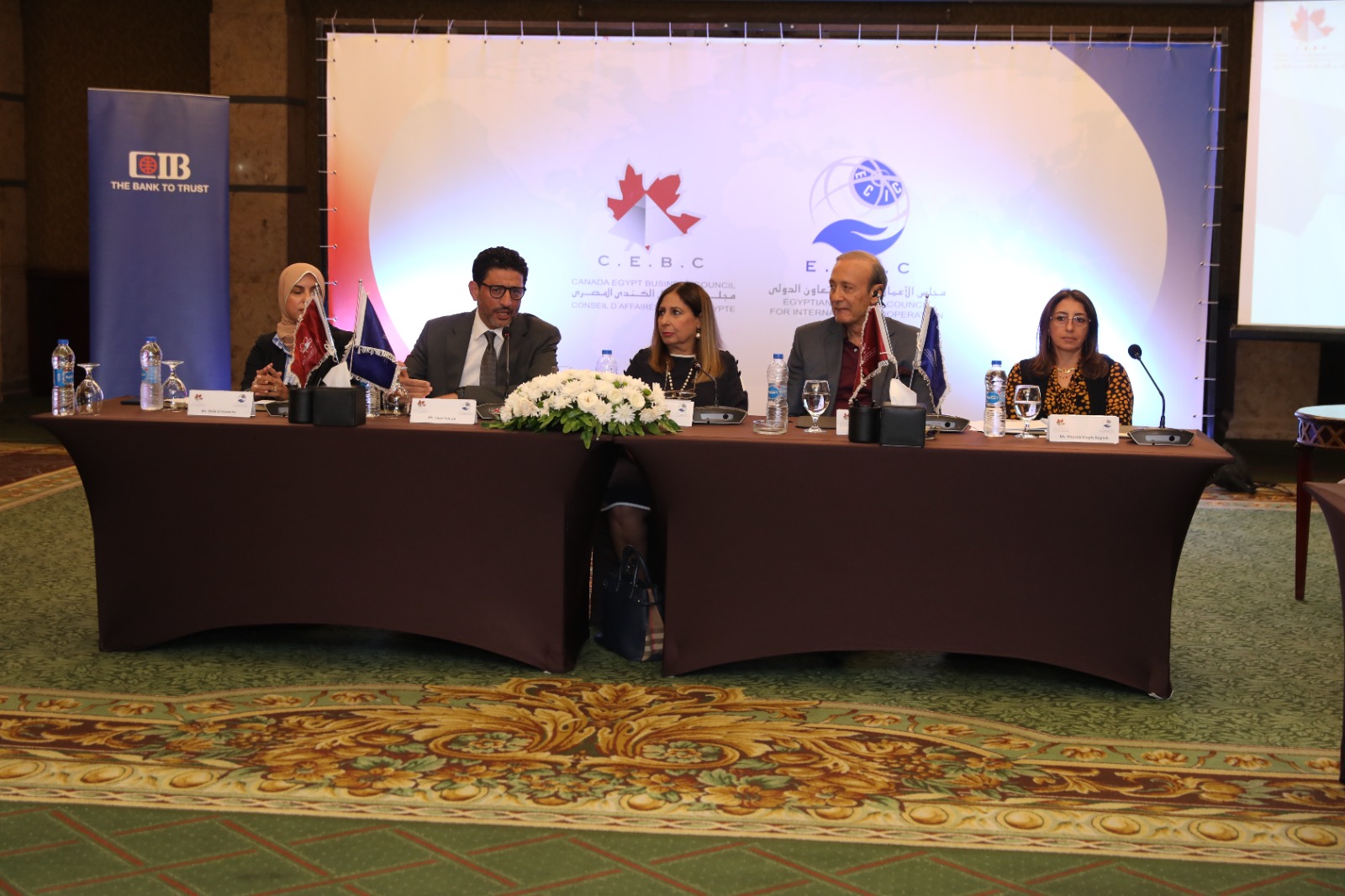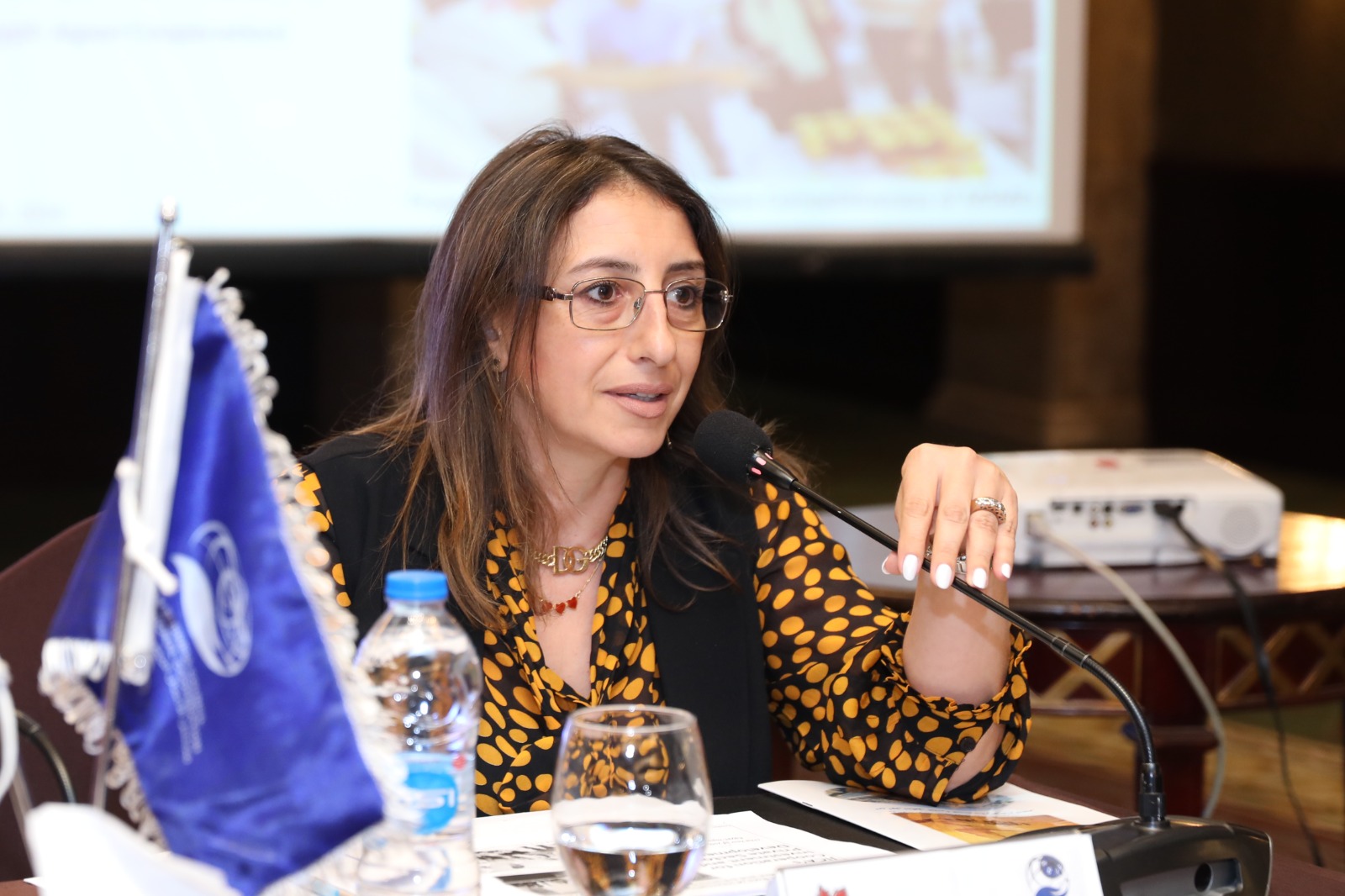
Date
Speaker(s)
Invitation
Description
The Egyptian state is making great strides and efforts to achieve sustainable development goals and boost growth rates, as it has taken many plans and initiatives to develop the economy and stimulate and attract foreign investments. The government is cooperating with many international development partners to achieve these goals, according to an ambitious national strategy that covers various sectors and fields in order to support development and enhance the role of the private sector.
Within this frame of reference, Canada Egypt Business Council and the Egyptian Council for International Cooperation held a committee meeting addressing “The Strategic Role of International Partners in Supporting Development and Enhancing the Role of the Private Sector in Egypt”.
In his opening remarks, Mr. Motaz Raslan chairman of CEBC and ECIC welcomed the forum guests: Mr. Saad Sabrah;Country Head – Egypt International Finance Corporation, Ms. Mayada Magdy Ragheb;Country Senior Representative Japan International Cooperation Agency, Ms. Wala El Husseiny; Country Director UN Global Compact Egypt and Dr. Hanaa El Helaly; Executive Director “Al Kheir Microfinance” Chair – CEBC International Cooperation Committee. He explained that the discussion would revolve around the role of international development partners in supporting development and enhancing the role of the private sector in Egypt.
Then the floor was given to Mr. Saad Sabrah;Country Head – Egypt International Finance Corporation, revealed IFC vision for coming years is to go to finance Egyptian Market with around one billion dollars annually, as long as sustainable projects and investment opportunities are available.
Sabra said, “There is joint cooperation between the Foundation and the Egyptian government in terms of financing, developing frameworks and mechanisms to enhance partnership between the public and private sectors, and strategic investment projects that are being studied and proposed for financing, and there are a group of expected developments in this regard.”
Saad Sabra explained that the International Finance Corporation, affiliated with the World Bank, provides advisory services which contributes to promoting and attracting foreign direct investments of a sustainable, strategic nature, adding that there will be positive outcomes in this regard.
And about the appropriateness of implementing proposals. In light of the geopolitical developments currently taking place in the region, Sabra said that Egypt still represents a promising and attractive investment
platform despite the current fluctuations and changes in the region, while caution must be taken in studying the proposal of some projects from an economic standpoint without rushing.
Ms. Mayada Magdy Ragheb; Country Senior Representative Japan International Cooperation Agency started her speech with a presentation about JICA,as she mentioned that JICA assists and supports developing countries as the executing agency of Japanese ODA.
In accordance with its vision of “Inclusive and Dynamic Development,” JICA supports the resolution of issues of developing countries by using the most suitable tools of various assistance methods and a combined regional-, country- and issue-oriented approach.
Since joining the Colombo Plan in 1954, Japan has been providing financial and technical assistance to developing countries through ODA, aiming to contribute more proactively to the peace, Stability and prosperity of the international community.
JICA is in charge of administering all ODA such as technical cooperation, ODA loans and grant aid in an integrated manner, except for contributions to international organisations. JICA, the world’s largest bilateral aid agency, works in over 154 countries and regions and has some 90 overseas offices.
She added The private sector serves as the driving force for economic growth in developing countries. Strong and comprehensive economic growth can be realised when private companies in various fields, including SMEs, achieve dynamic growth and development and create higher added value.
The Yokohama Declaration 2013 that was adopted at the Fifth Tokyo International Conference on African Development (TICAD V) in 2013 focused on the theme “Promoting Private Sector-Led Growth.” Assistance measures by the Japanese government also include Boosting Economic Growth (private sector and trade/investment). In the TICAD VI, the Nairobi Declaration which identifies Promoting Structural Economic Transformation through Economic Diversification and Industrialization, as one of priory area was announced in 2016.
Then she concluded her word mentioning JICA Activities saying that While a wide range of factors, including macroeconomic stability, infrastructure development, and improved basic education, constitute important elements of private-sector development, JICA focuses on the following fields: (1) developing policies and institutions for improving the business environment; (2) promoting trade and investment; (3) improving the competitiveness of companies; and (4) promoting local economies and industries.
In the same context Ms. Wala El Husseiny; Country Director
UN Global Compact Egypt, as she defined the history of Global Compact and capacity building, mentioning that it was initiated by Kofi Annan in 2000 and launched in Egypt since 2005 till 2021 where it was only spreading awareness to the private sector. Then in 2022, Global Compact was relaunched in a more active collaborative approach through being partner with the private sector and assisting them through their sustainability journey through implementing and embedding sustainability practices in their policies and day to day operation based on accepted principles in the areas of human rights, labor and environment.
They also provide the private sector with access to a frame work for responsible business practices that are acceptable worldwide.
She also mentioned that they are a digital platform that provides a range of services and different exposures to companies by providing this transparent digital platform where companies can report their sustainability progress and offer accessibility to a global network of piers and stakeholders through arranging workshops and events, so companies would know more about private sector practices and international marketing and show case success stories.
Then the floor was opened for questions and answers where many inquiries were discussed by the participants of the seminar.













